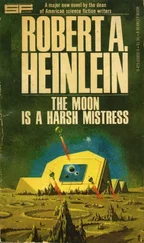Robert Heinlein - To Sail Beyond The Sunset
Здесь есть возможность читать онлайн «Robert Heinlein - To Sail Beyond The Sunset» весь текст электронной книги совершенно бесплатно (целиком полную версию без сокращений). В некоторых случаях можно слушать аудио, скачать через торрент в формате fb2 и присутствует краткое содержание. Жанр: Фантастика и фэнтези, на английском языке. Описание произведения, (предисловие) а так же отзывы посетителей доступны на портале библиотеки ЛибКат.
- Название:To Sail Beyond The Sunset
- Автор:
- Жанр:
- Год:неизвестен
- ISBN:нет данных
- Рейтинг книги:5 / 5. Голосов: 1
-
Избранное:Добавить в избранное
- Отзывы:
-
Ваша оценка:
- 100
- 1
- 2
- 3
- 4
- 5
To Sail Beyond The Sunset: краткое содержание, описание и аннотация
Предлагаем к чтению аннотацию, описание, краткое содержание или предисловие (зависит от того, что написал сам автор книги «To Sail Beyond The Sunset»). Если вы не нашли необходимую информацию о книге — напишите в комментариях, мы постараемся отыскать её.
To Sail Beyond The Sunset — читать онлайн бесплатно полную книгу (весь текст) целиком
Ниже представлен текст книги, разбитый по страницам. Система сохранения места последней прочитанной страницы, позволяет с удобством читать онлайн бесплатно книгу «To Sail Beyond The Sunset», без необходимости каждый раз заново искать на чём Вы остановились. Поставьте закладку, и сможете в любой момент перейти на страницу, на которой закончили чтение.
Интервал:
Закладка:
This meant that Betty Lou could handle the records and go to the bank and pick up the mail, while still taking care of her two children, i.e., the back room of the company's ‘palatial suite' was converted into a day nursery.
Yet I was only twenty minutes away and could relieve her if she needed me, straight down 3ist by trolley car, good neighbourhoods st both ends, where I need not feel timid even after dark.
We continued this way until 1915, when Brian and Nelson hired a downy duckling fresh out of Spaulding's Commercial College, Anita Boles. Betty Lou and I continued to keep an eye on the books and one of us would be in the office if both men were out of town, as this child still believed in Santa Claus. But her typing was fast and accurate. (We had a new Remington now. I kept my old Oliver at home - a loyal friend, grown feeble.)
So I continued to know our financial position. It was good and got steadily better. Brian accepted points in lieu of full fee several times in the years 1906-1913; five of these enterprises had made money and three had paid quite well: a reopened zinc mine near Joplin, a silver mine near Denver, and a gold mine in Montana... and Briney was just cynical enough that he paid freely under the table to keep a close check on both the silver mine and the gold mine. He told me once, ‘You can't stop high-grading. Even your dear old grandmother can be tempted when gold ore gets so heavy that you can simply pick it up and know that it is loaded. But you can making stealing difficult if you are willing to pay for service.'
By 1911 there was plenty of money coming in, but I could not tell where much of it was going - and I would not ask Briney. It came in, it showed in the books; Nelson drew out some of it, Brian drew out more of it. Some of it wound up in my and in Betty Lou's hands to support our two households. But that did not account for all of it. The firm's cheque account was simply an aid to bookkeeping, a means to pay Anita and to pay by cheque other expenses; it was never allowed to grow larger than was needed for those purposes.
It was many years before I learned more than that.
On 28 June 1914 in Sarajevo, Serbia, the heir to the throne of the Austro-Hungarian Empire was assassinated. He was Archduke Franz Ferdinand, an otherwise useless piece of royalty, and to this day I have never been able to understand why this event could cause Germany to invade Belgium a month later. I read carefully all the newspapers at the time; I studied all the books I could lay hands on since, and I still can't see it. Sheer folly. I can see why, by a sort of insane logic, the Kaiser would attack his first cousin in St Petersburg - a network of ‘suicide-compact' alliances.
But why invade Belgium?
Yes, yes, to get at France. But why get at France at all? Why go out of your way to start wars on two fronts? And why do it through Belgium when that would drag in the one nation on Earth with a navy big enough to bottle up the German High Seas Fleet and deny it the high seas?
I heard my father and my husband talking about these matters on 4 August 1914. Father had come over for dinner but it was not a merry occasion - it was the day of the invasion of Belgium and there had been extras out on the streets.
Brian asked, ‘Beau-père, what do you think about it?'
Father was slow to answer. ‘If Germany can conquer France in two weeks, Great Britain will drop out.'
‘Well?'
‘Germany can't win that fast. So England will come in. So it will be a long, long war. Write the ending yourself.'
‘You mean we will be in it.'
‘Be a pessimist and you will hardly ever be wrong. Brian, I know little or nothing about your business. But it is time for all businesses to get on a war footing. What do you deal in that is bound to get involved?'
Briney said nothing for several moments. ‘All metals are war materials. But... Beau-père, if you have some money you want to risk, let me point out that mercury is indispensable for munitions. And scarce. Mostly they mine it in Spain. A place called Almaden.'
‘Where else?'
‘California. Some in Texas. Want to go out to California?'
‘No. Been there. Not my taste. I think Ml go back to my digs and get a letter off to Leonard Wood. Damn it, he made the switch from medical corps to line officer- he ought to be able to tell me how I can do it.'
Briney looked thoughtful. ‘I don't want to be in the engineers again, either. I don't belong there.'
‘You'll be a pick-and-shovel soldier again if you wait and join up here.'
‘How's that?'
‘The old Third Missouri is going to be reorganised as an engineer regiment. Wait around long enough and they'll hand you a shovel:
I kept my best unworried mask on, and kept on knitting. It felt like the end of April, 1898.
The European War dragged along, horribly, with stories of atrocities in Belgium and of ships being sunk by German submarine boats. One could feel a division building up in America; the sinking of the Lusitania in May 1915 brought the dichotomy sharply to the fore. Mother wrote from St Louis about the strong sentiment there for the Central Powers. Her parents, my Grandpa and Grandma Pfeiffer, apparently took it for granted that all decent people supported ‘the Old Country' in this struggle - this, despite the fact that Grossvater's parents had come to America in 1848 to get away from Prussian Imperialism, along with their son, who was just the right age to be conscripted if they had not emigrated. (Grandpa was born in 1830.)
But now it was ‘Deutschland Über Alies' and everybody knew that the Jews owned France and ran everything there, and if those American passengers had minded their own business and stayed home where they belonged, out of the war zone, they wouldn't have been on the Lusitania - after all, the Emperor had warned them. It was their own fault.
My brother Edward in Chicago reported much the same sentiment there. He did not sound pro-German himself, but he did express a fervent hope that we would stay out of a war that wasn't any of our business.
This was not what I heard at home. When President Wilson made his famous (infamous?) speech about the sinking of the Lusitania, the ‘too proud to fight' speech, Father carne over to see Brian and sat there, smouldering like a volcano, until all the children were in bed or elsewhere out of earshot. Then he used language that I pretended not to hear. He applied it mainly to the cowardly tactics of the Huns but he saved a plentiful portion for that ‘pusillanimous Presbyterian parson' in the White House. ‘Too proud to fight! What sort of talk is that? It requires pride in order to fight. A coward slinks away with his tail between his legs. Brian, we need Teddy Roosevelt back in there!'
My husband agreed.
In the spring of 1916 my husband went to Plattsburg, New York, where the previous summer General Leonard Wood had instituted a citizens training camp for officer candidates - Brian had been disappointed not to be able to attend it in ages, and planned ahead not to miss it in 1916. Ethel was born while Brian was away, through some careful planning of my own. When he returned at the end of August, I had the property back in shape and ready to welcome him, i.b.a.w.m.l.o., so that he could w.m.t.b.w. - and ‘Mrs Gillyhooley' did her best to be worth more than five dollars.
I suspect that I was, as my biological pressure was far up past the danger line.
It was the longest dry spell of my married life, in part because I was thoroughly chaperoned at home. At Brian's request Father lived with us while Brian was away. No harem guard ever took his duties more seriously than Father did. Brian had often chaperoned me as a shut-eye sentry; protecting me from the neighbours, not from my own libidinous nature.
Father included protecting me from himself. Yes, I tested the water. I had known way back when I was still virgo intacta how thoroughly incestuous were my feelings toward my father. Furthermore I was certain that he was just as moved by me.
Читать дальшеИнтервал:
Закладка:
Похожие книги на «To Sail Beyond The Sunset»
Представляем Вашему вниманию похожие книги на «To Sail Beyond The Sunset» списком для выбора. Мы отобрали схожую по названию и смыслу литературу в надежде предоставить читателям больше вариантов отыскать новые, интересные, ещё непрочитанные произведения.
Обсуждение, отзывы о книге «To Sail Beyond The Sunset» и просто собственные мнения читателей. Оставьте ваши комментарии, напишите, что Вы думаете о произведении, его смысле или главных героях. Укажите что конкретно понравилось, а что нет, и почему Вы так считаете.








